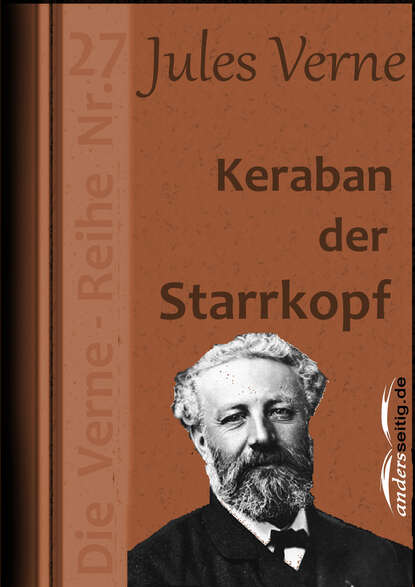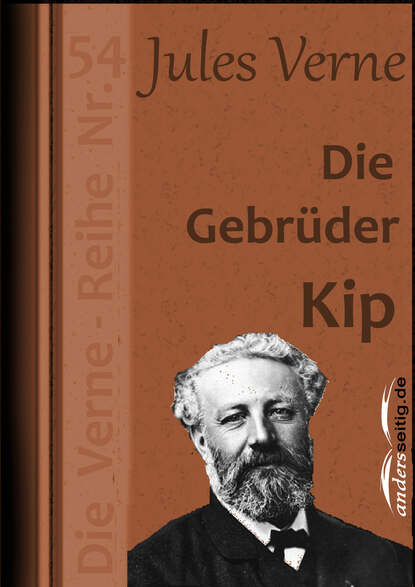 Полная версия
Полная версияПолная версия:
Жюль Габриэль Верн Round the World in Eighty Days
- + Увеличить шрифт
- - Уменьшить шрифт

Jules Verne
Round the World in Eighty Days
CHAPTER I
In which Phileas Fogg and Passe-partout accept, relatively, the positions of Master and Servant.
In the year of grace One thousand eight hundred and seventy-two, the house in which Sheridan died in 1816 – viz. No. 7, Saville Row, Burlington Gardens – was occupied by Phileas Fogg, Esq., one of the most eccentric members of the Reform Club, though it always appeared as if he were very anxious to avoid remark. Phileas had succeeded to the house of one of England's greatest orators, but, unlike his predecessor, no one knew anything of Fogg, who was impenetrable, though a brave man and moving in the best society. Some people declared that he resembled Byron – merely in appearance, for he was irreproachable in tone – but still a Byron with whiskers and moustache: an impassible Byron, who might live a thousand years and not get old.
A thorough Briton was Phileas Fogg, though perhaps not a Londoner. He was never seen on the Stock Exchange, nor at the Bank of England, nor at any of the great City houses. No vessel with a cargo consigned to Phileas Fogg ever entered the port of London. He held no Government appointment. He had never been entered at any of the Inns of Court. He had never pleaded at the Chancery Bar, the Queen's Bench, the Exchequer, or the Ecclesiastical Courts. He was not a merchant, a manufacturer, a farmer, nor a man of business of any kind. He was not in the habit of frequenting the Royal Institution or any other of the learned societies of the metropolis. He was simply a member of the "Reform," and that was all!
If anyone ever inquired how it was that he had become a member of the club, the questioner was informed that he had been put up by the Barings, with whom he kept his account, which always showed a good balance, and from which his cheques were regularly and promptly honoured.
Was Phileas Fogg a rich man? Unquestionably. But in what manner he had made his money even the best-informed gossips could not tell, and Mr. Fogg was the very last person from whom one would seek to obtain information on the subject. He was never prodigal in expenditure, but never stingy; and whenever his contribution towards some good or useful object was required he gave cheerfully, and in many cases anonymously.
In short, he was one of the most uncommunicative of men. He talked little, and his habitual taciturnity added to the mystery surrounding him. Nevertheless, his life was simple and open enough, but he regulated all his actions with a mathematical exactness which, to the imagination of the quidnuncs, was in itself suspicious.
Had he ever travelled? It was very probable, for no one was better informed in the science of geography. There was apparently no out-of-the-way place concerning which he had not some exclusive information. Occasionally, in a few sentences, he would clear away the thousand-and-one rumours which circulated in the club concerning some lost or some nearly-forgotten traveller; he would point out the true probabilities; and it really appeared as if he were gifted with second sight, so correctly were his anticipations justified by succeeding events. He was a man who must have been everywhere – in spirit at least.
One thing at any rate was certain, viz. that he had not been absent from London for many a year. Those with whom he was on a more intimate footing used to declare that no one had ever seen him anywhere else but on his way to or from his club. His only amusement was a game of whist, varied by the perusal of the daily papers. At whist, which was a game peculiarly fitted to such a taciturn disposition as his, he was habitually a winner; but his gains always were expended in charitable objects. Besides, it was evident to everyone that Mr. Fogg played for the game, not for the sake of winning money. It was a trial of skill with him, a combat; but a fight unaccompanied by fatigue, and one entailing no great exertion, and thus suiting him "down to the ground!"
No one had ever credited Phileas Fogg with wife or child, which even the most scrupulously honest people may possess; nor even had he any near relatives or intimate friends, who are more rare in this world. He lived alone in his house in Saville Row, and no one called upon him, or at any rate entered there. One servant sufficed for him. He took all his meals at his club, but he never shared a table with any of his acquaintance, nor did he ever invite a stranger to dinner. He only returned home to sleep at midnight precisely, for he never occupied any one of the comfortable bedrooms provided by the "Reform" for its members. Ten hours of the four-and-twenty he passed at home, partly sleeping, partly dressing or undressing. If he walked, it was in the entrance-hall with its mosaic pavement, or in the circular gallery beneath the dome, which was supported by twenty Ionic columns. Here he would pace with measured step. When he dined or breakfasted, all the resources of the club were taxed to supply his table with the daintiest fare; he was waited upon by the gravest black-coated servants, who stepped softly as they ministered to his wants upon a special porcelain service and upon the most expensive damask. His wine was contained in decanters of a now unobtainable mould, while his sherry was iced to the most excellent point of refrigeration of the Wenham Lake.
If existence under such circumstances be a proof of eccentricity, it must be confessed that something may be said in favour of it.
The house in Saville Row, without being luxurious, was extremely comfortable. Besides, in accordance with the habits of the tenant, the service was reduced to a minimum. But Phileas Fogg exacted the most rigid punctuality on the part of his sole domestic – something supernatural in fact. On this very day, the 2nd of October, Fogg had given James Forster notice to leave, because the fellow had actually brought up his master's shaving-water at a temperature of eighty-four instead of eighty-six degrees Fahrenheit; and Phileas was now looking out for a successor, who was expected between eleven and half-past.
Phileas Fogg was seated in his arm-chair, his feet close together at the position of "attention;" his hands were resting on his knees, his body was drawn up; with head erect he was watching the clock, which, by a complexity of mechanism, told the hours, minutes, seconds, the days of the week, and the month and year. As this clock chimed half-past eleven, Mr. Fogg, according to custom, would leave the house and walk down to his club.
Just then a knock was heard at the door of the room, and James Forster, the outgoing servant, appeared and announced, "The new young man" for the place.
A young fellow of about thirty entered and bowed.
"You are a Frenchman, and your name is John, eh?" inquired Phileas Fogg.
"Jean, sir, if you have no objection," replied the newcomer. "Jean Passe-partout, a surname which clings to me because I have a weakness for change. I believe I am honest, sir; but to speak plainly, I have tried a good many things. I have been an itinerant singer; a rider in a circus, where I used to do the trapeze like Leotard and walk the tight-rope like Blondin; then I became a professor of gymnastics; and, finally, in order to make myself useful, I became a fireman in Paris, and bear on my back to this day the scars of several bad burns. But it is five years since I left France, and wishing to enjoy a taste of domestic life I became a valet in England. Just now being out of a situation, and having heard that you, sir, were the most punctual and regular gentleman in the United Kingdom, I have come here in the hope that I shall be able to live a quiet life and forget my name of Jack-of-all-trades – Passe-partout!"
"Passe-partout suits me," replied Mr. Fogg. "I have heard a very good character of you, and you have been well recommended. You are aware of my conditions of service?"
"Yes, sir."
"Very well. What o'clock do you make it?"
"Twenty-two minutes past eleven," replied the valet, as he consulted an enormous silver watch.
"You are too slow," said Mr. Fogg.
"Excuse me, sir, that is impossible!"
"You are four minutes too slow. Never mind, it is enough to note the error. Now from this moment, twenty-nine minutes past eleven o'clock in the forenoon upon this 2nd of October, 1872, you are in my service!"
As he spoke, Phileas Fogg rose from his chair, took up his hat, put it on his head as an automaton might have done, and left the room without another word.
Passe-partout heard the street-door shut; it was his new master who had gone out. Shortly afterwards he heard it shut again – that was his predecessor, James Forster, departing in his turn.
Passe-partout was then left alone in the house in Saville Row.
CHAPTER II
Passe-partout is convinced that he has attained the object of his ambition.
"Faith," muttered Passe-partout, who for the moment felt rather in a flutter; "faith, I have seen creatures at Madame Tussaud's quite as lively as my new master."
Madame Tussaud's "creatures" are all of wax, and only want the power of speech.
During the short period that Passe-partout had been in Mr. Fogg's presence, he had carefully scrutinised his future master. He appeared to be about forty years of age, with a fine face; a tall and well-made man, whose figure was not too stout. He had light hair and whiskers, a clear brow, a somewhat pale face, and splendid teeth. He appeared to possess in a very marked degree that attribute which physiognomists call "repose in action," a faculty appertaining to those whose motto is "Deeds, not words." Calm and phlegmatic, with a clear and steady eye, he was the perfect type of those cool Englishmen whom one meets so frequently in the United Kingdom, and whom Angelica Kauffmann has so wonderfully portrayed. Mr. Fogg gave one the idea of being perfectly balanced, like a perfect chronometer, and as well regulated. He was, in fact, the personification of exactness, which was evident in the very expression of his hands and feet; for amongst men, as amongst the lower animals, the members are expressive of certain passions.
Phileas Fogg was one of those mathematical people who, never in a hurry, and always ready, are economical of their movements. He never made even one step too many; he always took the shortest cut; he never wasted a glance, nor permitted himself a superfluous gesture. No one had ever seen him agitated or moved by any emotion. He was the last man in the world to hurry himself, but he always arrived in time. He lived quite alone, and, so to speak, outside the social scale. He knew that in life there is a great deal of friction; and as friction always retards progress, he never rubbed against anybody.
As for Jean, who called himself Passe-partout, he was a Parisian of the Parisians. He had been for five years in England, and had taken service in London as a valet-de-chambre, during which period he had in vain sought for such a master as Mr. Fogg.
Passe-partout was not one of those Frontii or Mascarilles, who, with high shoulders and snubbed noses, and plenty of assurance, are nothing more than impudent dunces; he was a good fellow, with a pleasant face, somewhat full lips, always ready to eat or to kiss, with one of those good round heads that one likes to see on the shoulders of one's friends. He had bright blue eyes, was somewhat stout, but very muscular, and possessed of great strength. He wore his hair in a somewhat tumbled fashion. If sculptors of antiquity were aware of eighteen ways of arranging the hair of Minerva, Passe-partout knew but one way of doing his, namely, with three strokes of a comb.
We will not go as far as to predict how the man's nature would accord with Mr. Fogg's. It was a question whether Passe-partout was the exact sort of servant to suit such a master. Experience only would show. After having passed his youth in such a vagabond manner, he looked forward to some repose.
Having heard of the proverbial method and coolness of the English gentleman, he had come to seek his fortune in England; but up to the present time fate had been adverse. He had tried six situations, but remained in none. In all of them he had found either a whimsical, an irregular, or a restless master, which did not suit Passe-partout. His last master, the young Lord Longsferry, M.P., after passing the evening in the Haymarket, was carried home on the policemen's shoulders. Passe-partout, wishing above all things to respect his master, remonstrated in a respectful manner; but as his expostulations were so ill received, he took his leave. It was at that time that he heard Phileas Fogg was in search of a servant, and he presented himself for the situation. A gentleman whose life was so regular, who never stayed away from home, who never travelled, who never was absent even for a day, was the very master for him, so he presented himself and was engaged, as we have seen.
Thus it came to pass that at half-past eleven o'clock, Passe-partout found himself alone in the house in Saville Row. He immediately commenced to look about him, and search the house from cellar to garret. This well-arranged, severe, almost puritanical house pleased him very much. It appeared to him like the pretty shell of a snail; but a snail's shell lighted and warmed with gas would serve for both those purposes. He soon discovered the room he was to occupy, and was quite satisfied. Electric bells and indiarubber speaking-tubes put him into communication with the rooms, below. Upon the chimney-piece stood an electric clock, which kept time exactly with that in Phileas Fogg's bedroom.
"This will suit me exactly," said Passe-partout to himself.
He also remarked in his room a notice fixed above the clock. It was the programme of his daily duties. It included the whole details of the service from eight o'clock in the morning, the hour at which Mr. Fogg invariably arose, to half-past eleven, when he left the house to breakfast at the Reform Club. It comprised everything – the tea and toast at twenty-three minutes past eight, the shaving-water at thirty-seven minutes past nine, and his attendance at his master's toilet at twenty minutes to ten, and so on. Then from half-past eleven a.m. until midnight, when the methodical Fogg retired to bed, everything was noted down and arranged for. Passe-partout joyfully set himself to study the programme and to master its contents.
Mr. Fogg's wardrobe was well stocked and wonderfully arranged. Every pair of trousers, coat, or waistcoat bore a number, which was also noted in a register of entries and exits, indicating the date on which, according to the season, the clothes were to be worn. There were even relays of shoes and boots.
In fact, in this house in Saville Row, which had been a temple of disorder in the days of the illustrious but dissipated Sheridan, cosiness reigned supreme. There was no library and no books, which would have been useless to Mr. Fogg, since there were two reading-rooms at the Reform Club. In his bedroom was a small safe, perfectly burglar and fire proof. There were no firearms nor any other weapons in the house; everything proclaimed the owner to be a man of peaceable habits.
After having examined the house thoroughly, Passe-partout rubbed his hands joyously, a genial smile overspread his rounded face, and he muttered:
"This suits me completely. It is the very thing. We understand each other thoroughly, Mr. Fogg and I. He is a thoroughly regular and domestic man, a true machine. Well, I am not sorry to serve a machine."
CHAPTER III
In which a Conversation arises which is likely to cost Phileas Fogg dear.
Phileas Fogg left home at half-past eleven, and having placed his right foot before his left exactly five hundred and seventy-five times, and his left foot before his right five hundred and seventy-six times, he arrived at the Reform Club in Pall Mall, and immediately went up to the dining-room and took his place at his usual table, where his breakfast awaited him. The meal was composed of one "side-dish," a delicious little bit of boiled fish, a slice of underdone roast beef with mushrooms, a rhubarb and gooseberry tart, and some Cheshire cheese; the whole washed down with several cups of excellent tea, for which the Reform Club is celebrated.
At forty-seven minutes after twelve he rose from table and went into the drawing-room; there the servant handed him an uncut copy of The Times, which Phileas Fogg folded and cut with a dexterity which denoted a practised hand. The perusal of this journal occupied him till a quarter to four, and then The Standard sufficed till dinner-time. This repast was eaten under the same conditions as his breakfast, and at twenty minutes to six he returned to the saloon and read The Morning Chronicle.
About half an hour later, several of Mr. Fogg's friends entered the room and collected round the fireplace. These gentlemen were his usual partners at whist, and, like him, were all inveterate players.
They comprised Andrew Stuart, an engineer; the bankers, John Sullivan and Samuel Fallentin; Thomas Flanagan, the brewer; and Gauthier Ralph, one of the directors of the Bank of England; – all rich, and men of consequence, even in that club which comprised so many men of mark.
"Well, Ralph," asked Thomas Flanagan, "what about this robbery?"
"The bank must lose the money," replied Stuart.
"On the contrary," replied Ralph, "I am in hopes that we shall be able to put our hand upon the thief. We have detectives in America and Europe, at all the principal ports, and it will be no easy matter for him to escape the clutches of the law."
"Then you have the robber's description, of course," said Andrew Stuart.
"In the first place he is not a thief at all," replied Ralph seriously.
"What do you mean? Is not a man a thief who takes away fifty-five thousand pounds in bank-notes?"
"No," replied Ralph.
"He is then a man of business, I suppose?" said Sullivan.
"The Morning Chronicle assures me he is a gentleman."
This last observation was uttered by Phileas Fogg, whose head rose up from the sea of papers surrounding him, and then Phileas got up and exchanged greetings with his acquaintances.
The subject of conversation was a robbery, which was in everyone's mouth, and had been committed three days previously – viz. on the 29th of September. A pile of bank-notes, amounting to the enormous sum of fifty-five thousand pounds, had been stolen from the counter at the Bank of England.
The astonishing part of the matter was that the robbery had been so easily accomplished, and as Ralph, who was one of the deputy-governors, explained, that when the fifty-five thousand pounds were stolen, the cashier was occupied in carefully registering the receipt of three shillings and sixpence, and of course could not have his eyes in every direction at once.
It may not be out of place here to remark, which in some measure may account for the robbery, that the Bank of England trusts greatly in the honesty of the public. There are no guards, or commissionaires, or gratings; gold, silver, and notes are all exposed freely, and, so to speak, at the mercy of the first-comer. No one's honesty is suspected. Take the following instance, related by one of the closest observers of English customs. This gentleman was one day in one of the parlours of the Bank, and had the curiosity to take up and closely examine a nugget of gold weighing seven or eight pounds, which was lying on the table. Having examined the ingot, he passed it to his neighbour, he to the next man; and so the gold went from hand to hand quite down to the dark entry, and was not returned for quite half an hour, and all the time the bank official had not raised his head.
But on the 29th of September things did not work so nicely; the pile of bank-notes was not returned; and when the hands of the magnificent clock in the drawing-office pointed to the hour of five, at which time the bank is closed, the sum of fifty-five thousand pounds was written off to "profit and loss."
When it was certain that a robbery had been committed, the most skilful detectives were sent down to Liverpool and Glasgow and other principal ports, also to Suez, Brindisi, New York, &c., with promises of a reward of two thousand pounds, and five per cent on the amount recovered. In the meantime, inspectors were appointed to observe scrupulously all travellers arriving at and departing from the several seaports.
Now there was some reason to suppose, as The Morning Chronicle put it, that the thief did not belong to a gang, for during the 29th of September a well-dressed gentlemanly man had been observed in the bank, near where the robbery had been perpetrated. An exact description of this person was fortunately obtained, and supplied to all the detectives; and so some sanguine persons, of whom Ralph was one, believed the thief could not escape.
As may be imagined, nothing else was talked about just then. The probabilities of success and failure were warmly discussed in the newspapers, so it was not surprising that the members of the Reform Club should talk about it, particularly as one of the deputy-governors of the bank was present.
Ralph did not doubt that the search would be successful because of the amount of the reward, which would probably stimulate the zeal of the detectives. But Andrew Stuart was of a different opinion, and the discussion was continued between these gentlemen during their game of whist. Stuart was Flanagan's partner, and Fallentin was Fogg's. While they played they did not talk; but between the rubbers the subject cropped up again.
"Well," said Stuart, "I maintain that the chances are in favour of the thief, who must be a sharp one."
"But," replied Ralph, "there is no place a fellow can go to."
"Oh, come!"
"Well, where can he go to?"
"I can't tell," replied Stuart; "but the world is big enough, at any rate."
"It used to be," said Phileas Fogg, in an undertone. "Cut, if you please," he added, handing the cards to Flanagan.
Conversation was then suspended, but after the rubber Stuart took it up again, saying:
"What do you mean by 'used to be?' Has the world grown smaller, then?"
"Of course it has," replied Ralph. "I am of Mr. Fogg's opinion; the world has grown smaller, inasmuch as one can go round it ten times quicker than you could a hundred years ago. That is the reason why, in the present case, search will be more rapid, and render the escape of the thief easier."
"Your lead, Mr. Stuart," said Fogg.
But the incredulous Stuart was not convinced, and he again returned to the subject.
"I must say, Mr. Ralph," he continued, "that you have found an easy way that the world has grown smaller, because one now go round it in three months."
"In eighty days only," said Phileas Fogg.
"That is a fact, gentlemen," added John Sullivan. "You can make the tour of the world in eighty days, now that the section of the Great Indian Peninsular Railway is opened between Rothal and Allahabad, and here is the estimate made by The Morning Chronicle:
London to Suez, by Mont Cenis and Brindisi, Rail and Steamer.. 7 days.
Suez to Bombay, by Steamer.. 13 "
Bombay to Calcutta, by Rail.. 3 "
Calcutta to Hong Kong, by Steamer.. 13 "
Hong Kong to Yokohama, by Steamer.. 6 "
Yokohama to San Francisco, by Steamer.. 22 "
San Francisco to New York, by Rail.. 7 "
New York to London, Steam and Rail.. 9 "
Total.. 80 days."
"Yes, eighty days!" exclaimed Stuart, who, being absorbed in his calculations, made a mis-deal; "but that estimate does not take inter consideration bad weather, head-winds, shipwreck, railway accidents, &c."
"They are all included," remarked Fogg, as he continued to play, for this time the conversation did not cease with the deal.
"Even if the Hindoos or Indians take up the rails? Suppose they stop the trains, pillage the baggage-waggons, and scalp the travellers?"
"All included," replied Fogg quietly. "Two trumps," he added, as he won the tricks.
Stuart, who was "pony," collected the cards, and said: "No doubt you are right in theory, Mr. Fogg, but in practice – "
"In practice too, Mr. Stuart."
"I should like to see you do it."







